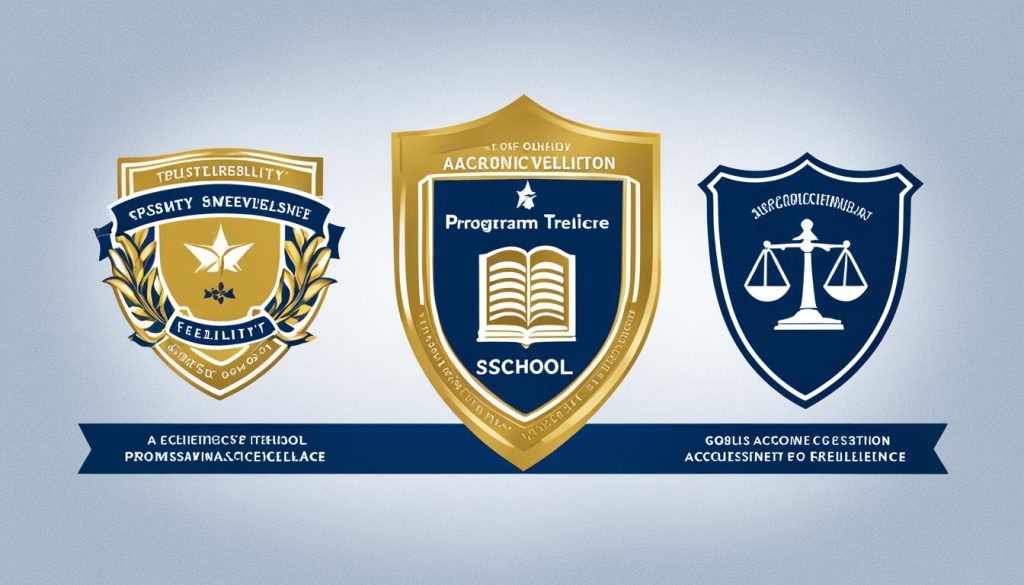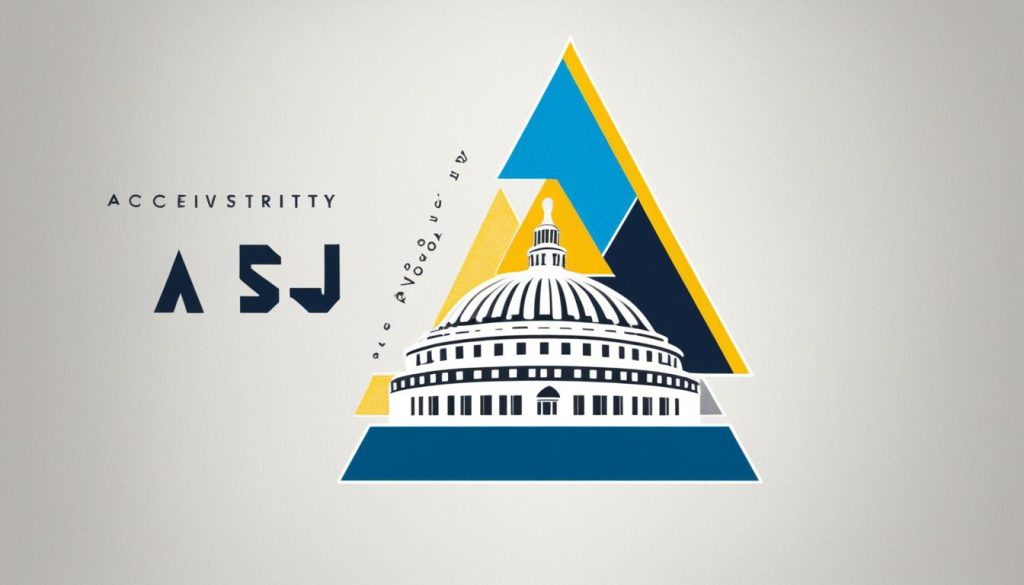Purdue University is a renowned educational institution known for its commitment to academic excellence. In this article, we will explore the accreditation status of Purdue University and its significance in ensuring quality education. Accreditation is a process that evaluates and validates an institution’s adherence to recognized standards of quality. It is an important factor to consider when choosing a university as it ensures that the institution meets certain educational standards and that its degrees and programs hold value in the job market.
Key Takeaways:
- Purdue University is recognized for its commitment to academic excellence.
- Accreditation is important for ensuring that a university meets educational standards.
- Accreditation validates the value of degrees and programs in the job market.
- Choosing an accredited university like Purdue enhances educational and career prospects.
- Accreditation signifies adherence to recognized standards of quality education.
What is Accreditation and Why is it Important?
Accreditation plays a crucial role in upholding educational quality and ensuring that institutions and programs meet established standards. It is a rigorous process of peer review that evaluates the overall quality of educational institutions, as well as specific programs.
There are two types of accreditation: institutional and specialized. Institutional accreditation focuses on assessing the educational quality of colleges and universities as a whole, considering factors such as curriculum, faculty qualifications, student support services, and infrastructure. On the other hand, specialized accreditation evaluates specific educational programs, ensuring that they meet industry-relevant standards and produce graduates who are well-prepared for their respective fields.
Accreditation does not establish rankings of institutions or programs, but it serves as a symbol of educational quality. It signifies to employers, graduate schools, and regulatory boards that the institution or program meets recognized standards. Graduating from an accredited institution or program holds value and is highly valued by employers and professional societies, enhancing the prospects of students in the job market.
Accreditation is achieved through a rigorous process of self-assessment, peer review, and evaluation. The accrediting bodies, composed of experts in the respective fields, evaluate the institutions or programs based on predefined educational standards. The process involves analyzing performance indicators, conducting site visits, and reviewing documentation to ensure compliance with the established standards.
By seeking accreditation, institutions and programs demonstrate their commitment to providing high-quality education and continuously improving their practices. It instills confidence in students, assuring them that they will receive a quality education and that their degrees will be recognized and respected by employers and other academic institutions.
“Accreditation serves as a symbol of educational quality, ensuring that institutions and programs meet recognized standards and provide students with a valuable education.”
Obtaining accreditation is a rigorous and voluntary process that requires commitment and dedication from educational institutions. However, the benefits of accreditation outweigh the challenges. Accreditation not only validates the quality of education but also promotes continuous improvement, ensuring that institutions and programs stay up-to-date with evolving educational practices and industry trends.
The journey towards accreditation involves various stakeholders, including faculty, administrators, students, and accrediting bodies. It is a collaborative effort aimed at upholding the integrity of the educational system and fostering excellence.
The Importance of Peer Review in Accreditation
A key component of the accreditation process is peer review, where professionals and experts in the respective fields assess the educational institutions and programs. Peer review ensures objectivity and fosters a culture of professional growth and improvement.
During the peer review process, institutions and programs receive constructive feedback and recommendations from experienced professionals. This feedback helps identify areas for improvement and guides institutions in aligning their practices with the established standards of quality.
The peer review process also encourages collaboration and the sharing of best practices among educational institutions. It facilitates the exchange of ideas and expertise, enabling institutions to learn from one another and strive for continuous improvement.
Overall, the accreditation process, driven by peer review, reinforces the importance of educational quality and ensures that institutions and programs meet recognized standards. It serves as a mechanism for accountability and improvement, benefiting students, employers, and society as a whole.
Purdue Global’s Accreditation and Approvals
Purdue University Global, the online division of Purdue University, holds accreditation from the Higher Learning Commission (HLC), an institutional accreditation agency recognized by the U.S. Department of Education. The HLC evaluates and ensures the quality of higher education institutions in the United States. Accreditation by the HLC demonstrates that Purdue Global meets rigorous standards of educational excellence and provides students with a high-quality education.
This accreditation is of utmost importance as it signifies that Purdue Global’s degrees and programs are recognized and valued by employers and other academic institutions. Students can trust that they are receiving a reputable and respected education.
“Accreditation by the Higher Learning Commission guarantees that Purdue Global meets the highest standards of quality in education. It is a testament to the university’s commitment to providing students with a valuable and impactful learning experience.”
U.S. Department of Education Recognition
Recognition from the U.S. Department of Education further solidifies Purdue Global’s accreditation status. It ensures that the university meets the comprehensive federal requirements for higher education institutions. Students can be confident in the legitimacy and value of their degrees when they graduate from Purdue Global.
Professional Licensure Preparation
Purdue Global is dedicated to preparing students for professional licensure in their chosen fields. The university offers programs designed to meet the licensure requirements set forth by state regulatory boards. Students pursuing licensure or certification can access the necessary resources and guidance to navigate the licensure process effectively.
To ensure program-specific licensure requirements are met, prospective and current students should review Purdue Global’s State Licensure and Certifications site. This resource provides information on state requirements, certification exams, and other pertinent details.
Affiliation with Accredited Organizations
Purdue Global maintains affiliations with prestigious organizations such as the Higher Learning Commission (HLC). These partnerships demonstrate the university’s commitment to upholding the highest standards of education. By aligning with renowned accrediting bodies, Purdue Global remains at the forefront of quality assurance and academic excellence.
Purdue Global’s Accreditations and Approvals
| Accreditation/Approval | Recognized By |
|---|---|
| Higher Learning Commission (HLC) | U.S. Department of Education |
| Program-Specific Accreditations | Accreditation Council for Business Schools and Programs (ACBSP) Computing Accreditation Commission of ABET American Health Information Management Association (AHIMA) Commission on Accreditation for Health Informatics and Information Management Education (CAHIIM) |
| Membership in Professional Associations | Society for Human Resource Management (SHRM) |
In conclusion, Purdue Global’s accreditation by the Higher Learning Commission and other recognized bodies ensures that students receive a high-quality education that meets industry standards and is valued by employers. The university’s commitment to professional licensure preparation further enhances students’ potential career prospects.
Professional Licensure and Program Requirements
Certain state certification and licensure boards have specific educational requirements for programs to lead to a license or certification in recognized occupations. It is important for prospective and current students to be aware of the state requirements and program-specific licensure information provided by Purdue Global’s State Licensure and Certifications site.
While passing a national exam is a significant achievement, it does not guarantee eligibility for state licensure. State-regulated occupations may have additional requirements such as work experience, completion of specific education requirements, and meeting other certification criteria. Therefore, it is essential for students to thoroughly understand the unique requirements of their respective states.
Purdue Global offers programs that are designed to provide students with the necessary knowledge and skills to pursue optional certification exams, which can enhance their professional credentials and career prospects. However, eligibility for these exams depends on various factors, including specific program requirements and state regulations.
State Licensure and Certifications Site
Prospective and current students can access Purdue Global’s State Licensure and Certifications site to find detailed information on program-specific licensure, state requirements, and additional resources related to professional licensure. This resource empowers students to make informed decisions regarding their educational and career paths, ensuring they meet the necessary criteria for their desired professions.
“Purdue Global’s State Licensure and Certifications site provides valuable and up-to-date information on program-specific licensure and state requirements, enabling students to navigate the professional licensure process with confidence.”
Preparing for Professional Certification
Purdue Global recognizes the importance of professional certification exams in many fields. The university focuses on providing comprehensive and rigorous programs that prepare students for these exams. However, it is crucial to note that eligibility for certification exams depends on factors beyond academic preparation, including work experience and adherence to specific criteria set by certification bodies.
By combining academic excellence with practical skills development, Purdue Global equips students with the knowledge and confidence necessary to pursue successful careers. The university’s commitment to professional licensure and certification reflects its dedication to helping students reach their full potential and thrive in their chosen fields.
Program and School Accreditation and Approvals
Purdue Global’s commitment to academic excellence is further validated by the program and school accreditations and approvals it has received. These accreditations ensure that Purdue Global’s programs meet established standards of quality education and are recognized and valued by employers and other academic institutions.
Program Accreditation
Purdue Global’s School of Business and Information Technology holds programmatic accreditation from two renowned accrediting agencies: the Accreditation Council for Business Schools and Programs (ACBSP) and the Computing Accreditation Commission of ABET. These accreditations signify that the business and information technology programs at Purdue Global meet rigorous standards of educational quality set by industry professionals and experts.
“ACBSP and ABET accreditation demonstrates Purdue Global’s commitment to providing students with a high-quality education in business and information technology. These accreditations validate the excellence of our programs and the value of our degrees in the competitive job market.”
These accreditations from ACBSP and ABET not only assure students of the quality education they will receive but also demonstrate the credibility and relevance of Purdue Global’s business and information technology programs in the professional world.
School Accreditation
In addition to program accreditation, Purdue Global’s School of Health Sciences holds accreditation from reputable organizations, including the American Health Information Management Association (AHIMA) and the Commission on Accreditation for Health Informatics and Information Management Education (CAHIIM). These accreditations affirm the high standards of education and training provided by Purdue Global in the field of health sciences.
With AHIMA and CAHIIM accreditation, students pursuing healthcare-related programs at Purdue Global can be confident in the quality of education they will receive and the value of their degrees in the healthcare industry.
Accreditation and Approvals
| Program/School | Accrediting/Approving Organization |
|---|---|
| School of Business and Information Technology |
|
| School of Health Sciences |
|

The table above summarizes the program and school accreditations Purdue Global holds. These accreditations reaffirm Purdue Global’s commitment to providing students with a quality education that prepares them for successful careers in their chosen fields.
Additional Approvals and Memberships
Purdue Global is committed to upholding academic excellence and institutional quality. In addition to its accreditation, Purdue Global holds various additional approvals, state authorizations, and memberships that further validate its standing as a reputable educational institution.
State Authorizations and Approvals
Purdue Global has received state authorizations and approvals from relevant educational bodies, ensuring compliance with state standards and licensing requirements. These authorizations enable Purdue Global to offer its programs to students in different locations, providing them with the opportunity to pursue their education while meeting the necessary licensure criteria.
Memberships and Associations
Purdue Global is a proud member of several esteemed organizations, including the Society for Human Resource Management (SHRM). Membership in professional societies like SHRM signifies Purdue Global’s commitment to staying current with industry best practices and establishing connections within the field. These affiliations contribute to Purdue Global’s ability to offer relevant and industry-aligned programs to its students.

Additional Approvals and Memberships
| Approvals and Authorizations | Memberships |
|---|---|
| State authorizations for various programs | Society for Human Resource Management (SHRM) |
| U.S. state approvals for online education | |
By maintaining these additional approvals and memberships, Purdue Global demonstrates its commitment to providing students with a high-quality education that meets industry standards and requirements. These affiliations further validate the integrity and standing of Purdue Global as an institution dedicated to academic excellence.
Conclusion
Accreditation plays a vital role in higher education, and Purdue University’s recognition by renowned agencies reaffirms its commitment to academic excellence. The accreditation status of Purdue Global ensures that its programs and degrees consistently meet established standards of quality, making them highly regarded by employers and other academic institutions. Students can have confidence in the exceptional education they will receive at Purdue Global and the value their degree will hold in the competitive job market. By choosing an accredited university like Purdue, students can elevate their educational and career prospects.
FAQ
What is accreditation?
Why is accreditation important?
What are the types of accreditation?
What is institutional accreditation?
What is specialized accreditation?
Does accreditation establish rankings of institutions or programs?
How is Purdue Global accredited?
What does Purdue Global’s accreditation by the HLC indicate?
Are there specific educational requirements for licensure?
Does passing a national exam guarantee eligibility for state licensure?
Which programs at Purdue Global have received programmatic accreditation?
What additional approvals and memberships does Purdue Global have?
Why is accreditation important in higher education?
Source Links
- https://engineering.purdue.edu/Engr/Academics/Accreditation
- https://catalog.purdueglobal.edu/policy-information/university-information/accreditation-approvals-memberships/
- https://catalog.purdueglobal.edu/policy-information/university-information/accreditation-approvals-memberships/accreditation-approvals-memberships.pdf




No comments! Be the first commenter?